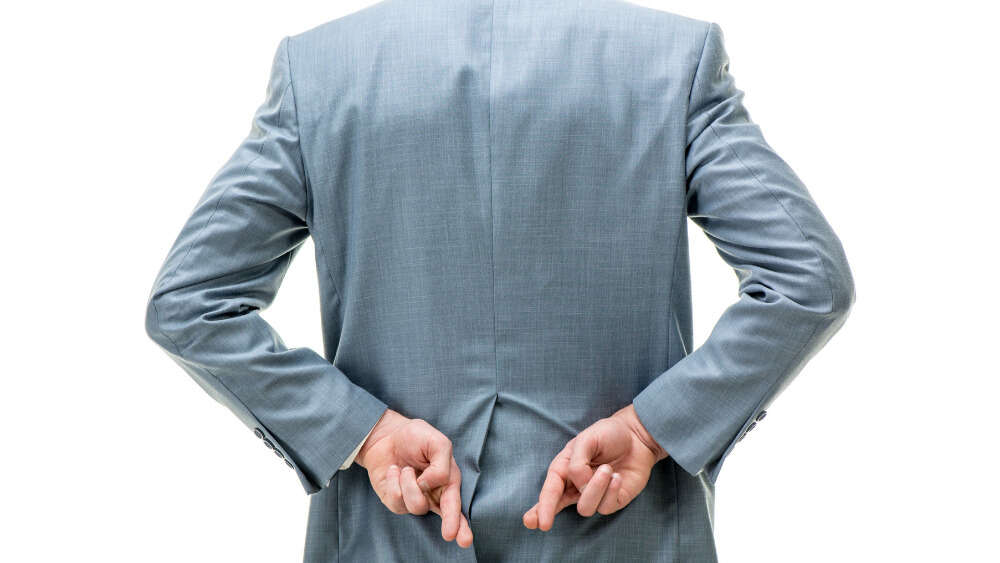Politicians urged to be honest
The call comes from religious, community and human rights groups
The Uniting Church of Australia and the Australian Muslim Advocacy Network have joined 14 other community, human rights and religious groups to call on candidates to prioritise honesty and truthful information during Australia’s federal election campaign.
The group has joined forces to call on all candidates to refrain from misleading voters and commit to reforms to stop the spread of disinformation.
The organisation’s policy vision asks political candidates to commit to three simple pledges: to campaign honestly, commit to meaningful reforms to stop disinformation, and develop laws to limit the spread of disinformation.
Many Australians are not aware that, at present, there are no laws prohibiting political candidates and parties from spreading factually incorrect or misleading information during an election campaign. The only restriction is that they must not mislead people about the actual voting process. For example, they cannot produce printed material that instructs a voter to fill out a ballot paper incorrectly.
“Candidates must step up, commit to campaigning honestly and pursuing reforms to stop disinformation if elected.” – Alice Drury, Human Rights Law Centre Senior Lawyer
The group is concerned about the rise of disinformation which became a concern during the 2019 election and rose significantly during the Covid-19 pandemic.
The new coalition warns that “disinformation frequently travels between newspapers, talkback radio, politicians’ tweets and messaging apps. Digital platforms and media companies profit from it, and alarmingly we’re seeing some politicians build platforms on it.”
The group is concerned that people are increasingly exposed to “more sensational, extreme and conspiratorial content”, which has “polarised and divided communities on vital issues like the pandemic response”.
“Disinformation is incredibly dangerous. As we’ve seen with the US Capitol riots, disinformation can poison democracy and cause massive civil unrest. We’ve also seen throughout the pandemic that disinformation on issues like vaccines can ultimately be deadly,” Human Rights Law Centre Senior Lawyer Alice Drury said on behalf of the group.
“Every single candidate running in the election has a role to play to protect our country from a dystopian future. Candidates must step up, commit to campaigning honestly and pursuing reforms to stop disinformation if elected.”
89 per cent of Australians surveyed confidently agreed “most politicians in Australia will lie if they feel the truth will hurt them politically”.
Research has revealed that most Australians do not consider politicians to be trustworthy.
Last year, the ABC’s ‘Australia Talks’ Survey revealed that 89 per cent of Australians surveyed confidently agreed “most politicians in Australia will lie if they feel the truth will hurt them politically”.
Similarly, 56 per cent casually agree that “Australian politicians are often corrupt”. And 59 per cent of respondents disagreed with the proposition that “politicians in Australia can generally be trusted to act in the interests of the people they represent”.
However, while many Australians have come to expect dishonesty from politicians, they do not consider dishonest behaviour from politicians to be acceptable.
A convincing 98 per cent of those surveyed said they firmly believed politicians should resign if they took a bribe. And, 95 per cent said a politician should resign if they misled parliament.
Bill Browne, Senior Researcher for the Democracy and Accountability Program at The Australia Institute – one of the groups calling for honesty in this election – said Australians deserved better.
“Australians deserve the facts when they go on social media or view political ads, but at the moment there is no guarantee that that is what they are getting. We need nationally consistent, constitutional laws that limit misinformation while upholding freedom of speech,” Browne said.
The organisations stress that silencing the debate is not the answer. Instead, they say the country needs “strong and systemic regulation to challenge the business models that underpin disinformation while ensuring the national conversation is focused on a passionate exchange of ideas and information about the best way to govern Australia”.
Organisations supporting the public statement include the Australian Council of Social Service, Community Council for Australia, Foundation for Young Australians and The Australia Institute.
Zali Stegall, Independent MP for Warringah in Sydney’s northern beaches, is also concerned about dishonesty and disinformation in politics. Last year Stegall introduced a ‘Stop the lies‘ bill in parliament. This year, she has released Integrity and trust: restoring faith in Australian politics with policies to create checks and balances as part of her election platform.
Stegall’s website includes an online reporting tool for Australians to report disinformation in the election campaign. The MP has pledged to reintroduce her “stop the lies” bill to parliament should she win another term.
Email This Story
Why not send this to a friend?



